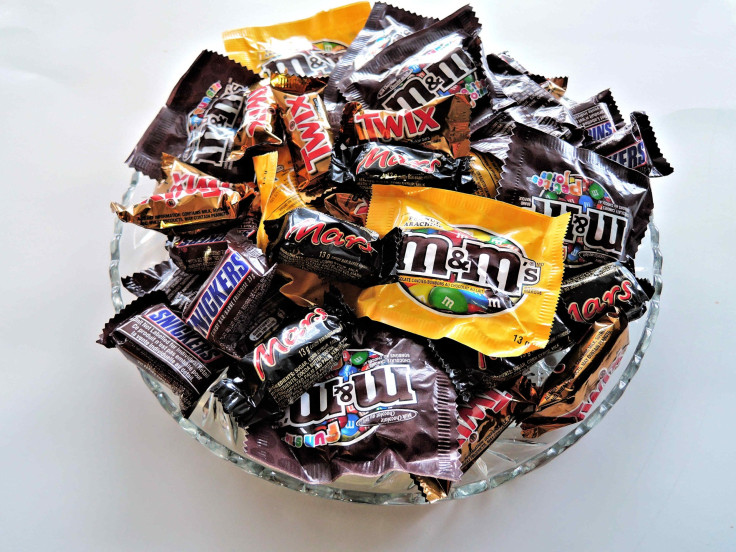Halloween Candy Tips: How Parents Can Stop Kids From Overeating, Avoid Sugar Highs
While Halloween may be a child's favorite time of the year, many parents dread having to deal with their kids' sugar highs and stomach aches from overeating their sugary treats.
However, there are various ways to prevent children from going overboard with all of the free Halloween candy they receive from trick-or-treating while also teaching a lesson in moderation.
Dietitian Abbey Sharp told Yahoo that parents can use Halloween as a learning opportunity to manage their children's sugar intake and impart lessons in self-control.
"Most parents are worried that kids won't be able to control themselves around candy and will gorge themselves for weeks after Halloween and never eat another vegetable again," Sharp said.
"But research suggests that the more novel or forbidden we make foods like candy, the more likely kids are to overeat them."
Sharp recommended letting children learn from their mistakes. "On Halloween night, feed them a balanced dinner with lots of satiating fiber, protein, and fats. Once they bring home their loot, let them eat as much as they want that night," Sharp explained.
"If they complain of a tummy ache, use that as a teachable moment."
From there, parents can place reasonable restrictions on their child's access to their Halloween candy.
"The day or two after Halloween, choose a snack time and allow them to choose whatever they want from their bag without limiting quantity. This reminds them that candy isn't that special after all, so it robs it of its allure," Sharp said.
Sharp claims the schedule will eventually cause the child to lose interest in bingeing on large quantities of candy.
"After three days, the excitement starts to wear off, and kids can make the connection that eating a lot of sugar doesn't make us feel great. They'll start to eat less candy without any prompting or restricting," Sharp said.
It's easy for kids to eat 100 calories in Halloween candy with just 22.8 M&M's, 4.3 Jolly Ranchers, 2.8 snack-size Kit Kat, 2.3 Hershey's miniatures, 1.3 fun-size Musketeers, or 1.25 snack-size Reese's Peanut Butter Cups.
While Halloween candy isn't the healthiest snack option, Sharp cautions parents against speaking negatively about their child's favorite goodies.
"Don't call the loot 'junk food,' 'toxic,' 'poison,' or 'bad food you.' Call each sweet what it is – it's a mini chocolate bar, candy corn, or chips," she advised.
"Language does matter, and it's important that we talk in morally neutral terms if we want our kids to have a morally neutral relationship with food."

© Copyright IBTimes 2025. All rights reserved.






















